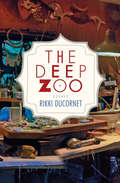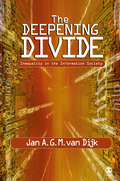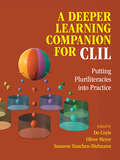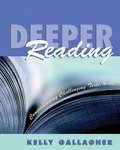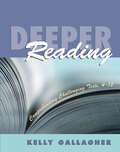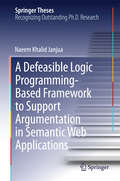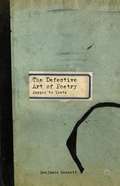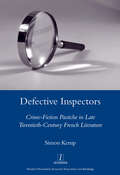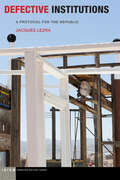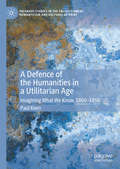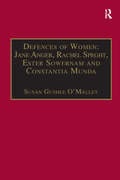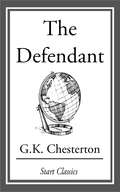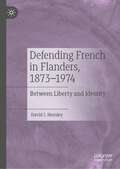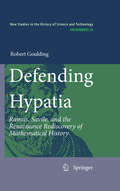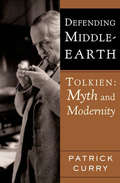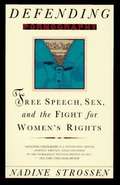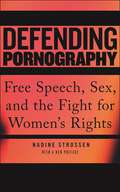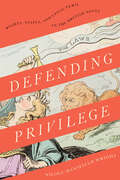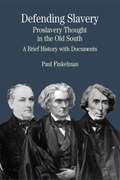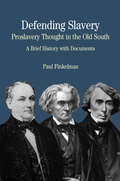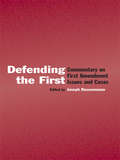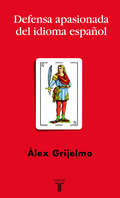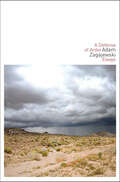- Table View
- List View
The Deep Zoo: Essays
by Rikki DucornetIncluded in Library Journal's "25 Key Indie Fiction Titles, Fall 2014-Winter 2015"Within the writer's life, words and things acquire power. For Borges it is the tiger and the color red, for Cortázar a pair of amorous lions, and for an early Egyptian scribe the monarch butterfly that metamorphosed into the Key of Life. Ducornet names these powers The Deep Zoo. Her essays take us from the glorious bestiary of Aloys Zötl to Abu Ghraib, from the tree of life to Sade's Silling Castle, from The Epic of Gilgamesh to virtual reality. Says Ducornet, "To write with the irresistible ink of tigers and the uncaging of our own Deep Zoo, we need to be attentive and fearless-above all very curious-and all at the same time.""Ducornet's skill at drawing unexpected connections, and her ability to move between outrage and meditativeness, are gripping to behold."-Star Tribune"This collection of essays meditates on art, mysticism, and more; it'll leave a reader with plenty to ponder."-Vol. 1 Brooklyn"Rikki Ducornet's new collection The Deep Zoo is filled with smart and surprising essays that explore our connections to the world through art."-Largehearted Boy""The Deep Zoo" acts as a kind of foundational text, a lens to view her work and the other essays through. . . Subversive at heart and acutely perceptive."-Numero Cinq"Ducornet moves between these facets of human experience with otherworldly grace, creating surprising parallels and associations. . . The Deep Zoo is a testament to her acrobatic intelligence and unflinching curiosity. Ducornet not only trusts the subconscious, she celebrates and interrogates it."-The Heavy Feather"What struck me most about this collection, and what I am confident will pull me back to it again, is Ducornet's obvious passion for life. She is . . . attentive, fearless, and curious. And for a hundred pages we get to see how it feels to exist like that, what it's like to think critically and still be open to the world."-Cleaver Magazine"Rikki Ducornet is imagination's emissary to this mundane world."-Stephen Sparks, Green Apple Books on the Park"This book is like the secret at the heart of the world; I've put other books aside."-Anne GermanacosPraise for Rikki Ducornet"A novelist whose vocabulary sweats with a kind of lyrical heat."-The New York Times"Linguistically explosive . . . one of the most interesting American writers around."-The Nation"Ducornet-surrealist, absurdist, pure anarchist at times-is one of our most accomplished writers, adept at seizing on the perfect details and writing with emotion and cool detachment simultaneously."-Jeff Vandermeer"A unique combination of the practical and fabulous, a woman equally alive to the possibilities of joy and the necessity of political responsibility, a creature-à la Shakespeare's Cleopatra-of 'infinite variety,' Ducornet is a writer of extraordinary power, in whose books 'rigor and imagination' (her watchwords) perform with the grace and daring of high-wire acrobats."-Laura Mullen, BOMB Magazine"The perversity, decadence, and even the depravity that Ducornet renders here feel explosively fresh because their sources are thought and emotion, not the body, and finally there's some pathos too."-The Boston Globe"Ducornet's skill at drawing unexpected connections, and her ability to move between outrage and meditativeness, are gripping to behold."-Tobias Carroll, Star Tribune"This collection of essays meditates on art, mysticism, and more; it'll leave a reader with plenty to ponder."- Vol. 1 Brooklyn"Rikki Ducornet's new collection The Deep Zoo is filled with smart and surprising essays that explore our connections to the world through art."- Largehearted Boy
Deepakam Prathamo Bhag class 6 - NCERT-25: दीपकम् प्रथमो भागः ६वीं कक्षा - एनसीईआरटी - २५
by Rashtriy Shaikshik Anusandhan Aur Prashikshan Parishadदीपकम् प्रथमः भागः यह पुस्तक संस्कृत भाषा के प्रारंभिक शिक्षार्थियों के लिए एक महत्वपूर्ण पाठ्यपुस्तक है, जो वर्णमाला के अध्ययन से लेकर सरल वाक्य-रचना और शब्दज्ञान तक विस्तृत अभ्यास प्रदान करती है। इसमें सबसे पहले स्वर तथा व्यंजन वर्णों का स्पष्ट वर्गीकरण और उनके उच्चारण-स्थान की जानकारी दी गई है। पुस्तक में वर्णों को उनके प्रकार जैसे कण्ठ्य, तालव्य, मूर्धन्य, दन्त्य, ओष्ठ्य आदि के आधार पर समझाया गया है। पाठों के माध्यम से व्याकरण के मूलभूत सिद्धांत जैसे संधि, संयुक्ताक्षर, लट्लकार, शब्दरूप, धातुरूप आदि का अभ्यास करवाया गया है। हर पाठ में "वयं शब्दार्थान् जानीमः", "वयम् अभ्यासं कुर्मः" और "परियोजनाकार्यम्" जैसे अनुभाग विद्यार्थियों को व्यावहारिक अभ्यास के साथ-साथ रचनात्मकता की ओर भी प्रेरित करते हैं। इसके अलावा छात्रों की पारिवारिक और सामाजिक जानकारी को भी संस्कृत में प्रस्तुत करने का अवसर दिया गया है, जैसे नाम, कुल, शिक्षकों व मित्रों के नाम लिखना आदि। कुल मिलाकर, यह पुस्तक विद्यार्थियों को संस्कृत भाषा के मूल तत्वों की समझ विकसित करने में सहायक है और उन्हें अभ्यास के माध्यम से भाषा में प्रवीणता की दिशा में मार्गदर्शन देती है।
The Deepening Divide: Inequality in the Information Society
by Professor Jan A van DijkThe Deepening Divide: Inequality in the Information Society explains why the digital divide is still widening and, in advanced high-tech societies, deepening. Taken from an international perspective, the book offers full coverage of the literature and research and a theoretical framework from which to analyze and approach the issue. Where most books on the digital divide only describe and analyze the issue, Jan van Dijk presents 26 policy perspectives and instruments designed to close the divide itself.
A Deeper Learning Companion for CLIL: Putting Pluriliteracies into Practice
by Do Coyle Oliver Meyer Susanne Staschen-DielmannIf education is to prepare learners for lifelong learning, there needs to be a shift towards deeper learning: a focus on transferable knowledge and problem-solving skills alongside the development of a positive or growth mind-set. Deeper learning is inextricably linked with CLIL (Content and Language Integrated Learning) – a revolutionary teaching approach where students study subjects in a different language. Designed as a companion to the influential volume Beyond CLIL, this highly practical book offers step-by-step instruction for designing and implementing innovative tasks and materials for pluriliteracies development. It contains annotated case studies of deeper learning lesson plans across a wide range of school subjects, using an innovative and proven template, to help teachers explore the potential of deeper learning inside their own classrooms. Theoretically grounded, this book offers a roadmap for schools, ranging from exploratory first steps, to transdisciplinary projects, to whole school moves for curriculum development and transformative pedagogies.
Deeper Reading: Comprehending Challenging Texts, 4-12
by Kelly GallagherBuilding on twenty years of teaching language arts, the author shows how students can be taught to successfully read a broad range of challenging and difficult texts with deeper levels of comprehension. In this book, the author shares effective, classroom-tested strategies that enable your students to: accept the challenge of reading difficult books; move beyond a "first draft" understanding of the text into deeper levels of reading; consciously monitor their comprehension as they read; employ effective fix-it strategies when their comprehension begins to falter; use meaningful collaboration to achieve deeper understanding of texts; think metaphorically to deepen their reading comprehension; reach deeper levels of reflection by understanding the relevance the book holds for themselves and their peers; use critical thinking skills to analyze real-world issues. The author also provides guidance on effective lesson planning that incorporates strategies for deeper reading.
Deeper Reading: Comprehending Challenging Texts, 4-12
by Kelly GallagherDo your students often struggle with difficult novels and other challenging texts? Do you feel that you are doing more work teaching the novel than they are reading it? Building on twenty years of teaching language arts, Kelly Gallagher shows how students can be taught to successfully read a broad range of challenging and difficult texts with deeper levels of comprehension. In Deeper Reading: Comprehending Challenging Texts, 4-12 , he shares effective, classroom-tested strategies that enable your students to: Accept the challenge of reading difficult books and move beyond a "first draft" understanding Consciously monitor their comprehension as they read and employ effective "fix-it" strategies when comprehension starts to falter Use meaningful collaboration and metaphorical thinking to achieve deeper understanding of texts Reflect on the relevance the book holds for themselves and their peers by using critical thinking skills to analyze real-world issues Gallagher also provides guidance on effective lesson planning that incorporates strategies for deeper reading. Funny, poignant, and packed with practical ideas that work in real classrooms, Deeper Reading is a valuable resource for any teacher whose students need new tools to uncover the riches found in complex texts.
A Defeasible Logic Programming-Based Framework to Support Argumentation in Semantic Web Applications (Springer Theses)
by Naeem Khalid JanjuaThis book reports on the development and validation of a generic defeasible logic programming framework for carrying out argumentative reasoning in Semantic Web applications (GF@SWA). The proposed methodology is unique in providing a solution for representing incomplete and/or contradictory information coming from different sources, and reasoning with it. GF@SWA is able to represent this type of information, perform argumentation-driven hybrid reasoning to resolve conflicts, and generate graphical representations of the integrated information, thus assisting decision makers in decision making processes. GF@SWA represents the first argumentative reasoning engine for carrying out automated reasoning in the Semantic Web context and is expected to have a significant impact on future business applications. The book provides the readers with a detailed and clear exposition of different argumentation-based reasoning techniques, and of their importance and use in Semantic Web applications. It addresses both academics and professionals, and will be of primary interest to researchers, students and practitioners in the area of Web-based intelligent decision support systems and their application in various domains.
The Defective Art of Poetry
by Benjamin BennettTreating the work of Sappho, Goethe, Blake, H#65533;lderlin, Verlaine, George, M#65533;rike, and Yeats in detail, Bennett makes the provocative argument that the nature of lyric poetry in the West has an element of defectiveness. This study delves into the irresolvable conflict between a poem's guise as quasi-architectural stasis and quasi-musical kinesis.
Defective Inspectors: Crime-fiction Pastiche In Late Twentieth-century French Literature
by Simon KempCrime fiction is a popular target for literary pastiche in France. From the nouveau roman and the Oulipo group to the current avant-garde, writers have seized on the genre to exploit it for their own ends, toying with its traditional plots and characters, and exploring its preoccupations with perception, reason and truth. In the first full-length study of the phenomenon, Simon Kemp's investigation centres on four major writers of the twentieth century, Alain Robbe-Grillet (b. 1922), Michel Butor (b. 1926), Georges Perec (193682) and Jean Echenoz (b. 1947). Out of their varied encounters with the genre, from deconstruction of the classic detective story to homage to the roman noir, Kemp elucidates the complex relationship between the pasticheur and his target, which demands an entirely new assessment of pastiche as a literary form.
Defective Institutions: A Protocol for the Republic (Idiom: Inventing Writing Theory)
by Jacques LezraDefective Institutions overturns the basis of institutionalism. Faith in classic institutions—exposed as clamorously inadequate by the failure of governance under neoliberalism--does not result in greater democracy, greater horizontality, or more equitable living. Nor does trust in the standing of decisions, in the authority of antecedent cases, in the coherence, strength, continuity, or solidity of the institutions that frame and render legitimate these decisions and the rules they buttress. To the contrary: the classically-imagined institution and our faith in it lie at the heart of neoliberal unfreedom and racialized violence.Working at the point of contact and conflict between socialist and anarcho-philosophical traditions, Defective Institutions offers an alternative, which is also an alternative to the figures of governance associated with the liberal conception of the state: an aberrant republicanism comprised of defective institutions, run through with the necessity of their abolition. Lezra’s book moves from the primitive scenes of Western political institution—the city; the family; the university; the first person; “race”—through recent work in the philosophy of translation, decolonial studies, abolitionism, Afropessimism and its critiques, psvchoanalysis, and musicology.To offer an original wedding of abolition and institution, Lezra brings together genealogies of contemporary institutionalism (from Durkheim and Hauriou to Searle); post-Marxist accounts of the state (Balibar, Abensour); philosophical and anthropological anarchism (Wolff, Malabou, Graeber, Scott); critical legal theory (analyses of Marbury v. Madison as well as Dobbs v. Jackson); continental and analytic versions and critiques of foundationalism (Heidegger, Lyotard and Butler; Quine, Searle and Fine); and political and sociological abolitionism (Lewis, O’Brien). At a time when some call for strengthening institutions and for defending liberties ostensibly protected by such institutions, and others long for the destruction of institutions that have long been oppressive, Lezra’s book offers today’s Left a new framework for confronting institutions’ necessity and their necessary abolition.
A Defence of the Humanities in a Utilitarian Age: Imagining What We Know, 1800-1850 (Palgrave Studies in the Enlightenment, Romanticism and Cultures of Print)
by Paul KeenThis book explores the ways that critics writing in the early nineteenth century developed arguments in favour of the humanities in the face of utilitarian pressures. Its focus reflects the ways that similar pressures today have renewed the question of how to make the case for the public value of the humanities. The good news is that in many ways, this self-reflexive challenge is precisely what the humanities have always done best: highlight the nature and the force of the narratives that have helped to define how we understand our society – its various pasts and its possible futures – and to suggest the larger contexts within which these issues must ultimately be situated.
Defences of Women: Printed Writings 1500-1640: Series 1, Part One, Volume 4 (The Early Modern Englishwoman: A Facsimile Library of Essential Works & Printed Writings, 1500-1640: Series I, Part One)
by Susan Gushee O'MalleyJane Anger her Protection for Women A Mouzell for Melastomus Ester hath hang’d Haman The Worming of a mad Dogge Of the many tracts in defence of women published in early modern England only these four bear women’s names. All four were written in response to misogynist attacks. Of these writers, only Speght (1597-c.1630) is historically identifiable. Two or possibly three of the others use pseudonyms and indeed their gender has not yet been definitely established.
The Defendant
by G. K. ChestertonG.K. Chesterton's collected essays on subjects ranging from detective stories and penny dreadfuls to heraldry and patriotism. The essays originally appeared in "The Speaker" but were edited and revised for republication.
Defending French in Flanders, 1873–1974: Between Liberty and Identity
by David J. HensleyThis book examines the efforts of the French-speaking minority in Flanders, Belgium, to maintain a legal and social presence of the French language in Flemish public life. Chronologically, the study is bookended by two developments, almost exactly a century apart. In 1873, the first laws were passed which required the use of Dutch in some aspects of public administration in Flanders, challenging the de facto use of French among the Flemish ruling class. One hundred and one years later, the last French daily newspaper in Flanders collapsed, marking the end of a once-vibrant French-language public sphere in Flanders. The author contends that the methods and arguments by which French speakers defended the role of French in Flemish public life changed along with the social and political situation of this minority. As the Flemish movement grew over the course of the twentieth century, French speakers’ appeals to the “free choice” of language lost traction, and they put forward claims that they represented an ethnolinguistic minority who deserved protection for their mother tongue. Providing new insights for scholars of European history, and in conversation with the literature on liberalism, national identity, and Francophonie, this book demonstrates how the debate over the role of French in Flanders was at the center of Belgium’s ethnolinguistic conflict – the repercussions of which continue to be felt to this day.
Defending Hypatia
by Robert GouldingWhy should mathematics, the purest of sciences, have a history? Medieval mathematicians took little interest in the history of their discipline. Yet in the Renaissance the history of mathematics flourished. This book explores how Renaissance scholars recovered and reconstructed the origins of mathematics by tracing its invention in prehistoric Antiquity, its development by the Greeks, and its transmission to modern Europe via the works of Euclid, Theon and Proclus. The principal architects of this story -- the French philosopher and University of Paris reformer Peter Ramus, and his critic, the young Oxford astronomy lecturer Henry Savile - worked out diametrically opposed models for the development of the mathematical arts, models of historical progress and decline which mirrored each scholar's larger convictions about the nature of mathematical thinking, the purpose of the modern university, and the potential of the human mind. In their hands, the obscure story of mathematical history became a site of contention over some of the most pressing philosophical and pedagogical debates of the sixteenth century.
Defending Middle-Earth: Tolkien: Myth and Modernity
by Patrick CurryA scholar explores the ideas within The Lord of the Rings and the world created by J. R. R. Tolkien: &“A most valuable and timely book&” (Ursula K. Le Guin, Los Angeles Times–bestselling author of Changing Planes). What are millions of readers all over the world getting out of reading the Lord of the Rings trilogy? Defending Middle-earth argues, in part, that the appeal for fans goes far deeper than just quests and magic rings and hobbits. In fact, through this epic, Tolkien found a way to provide something close to spirit in a secular age. This thoughtful book focuses on three main aspects of Tolkien&’s fiction: the social and political structure of Middle-earth and how the varying cultures within it find common cause in the face of a shared threat; the nature and ecology of Middle-earth and how what we think of as the natural world joins the battle against mindless, mechanized destruction; and the spirituality and ethics of Middle-earth—for which the author provides a particularly insightful and resonant examination. Includes a new afterword
Defending Pornography: Free Speech, Sex, and the Fight for Women's Rights
by Nadine StrossenTraditional explanations of why pornography must be defended from would-be censors have concentrated on censorship's adverse impacts on free speech and sexual autonomy. In contrast, Nadine Strossen focuses on the women's rights-centered rationale for defending pornography.
Defending Pornography: Free Speech, Sex, and the Fight for Women's Rights
by Nadine StrossenA new edition of a groundbreaking, feminist defense of pornography as free speechNamed a Notable Book by The New York Times Book Review in 1995, Defending Pornography examines a key question that has divided feminists for decades: is censoring pornography good or bad for women? Nadine Strossen makes a powerful case that increasing government power to censor sexual expression, beyond the limits that the First Amendment sensibly permits (for example, outlawing child pornography) would do more harm than good for women and others who have traditionally been marginalized due to sex or gender, She explains how the very anti-porn laws pushed by some feminists have led to the censorship of LGBTQ+ and feminist works, and she examines the startling connections between anti-porn feminists and right-wing fundamentalists. In an illuminating new Preface, Strossen lays out the multiple current assaults on sexual expression, which continue to come from across the ideological spectrum. She shows that freedom for such expression remains an essential prerequisite for the equality, safety, and dignity of women and sexual/gender minorities.
Defending Privilege: Rights, Status, and Legal Peril in the British Novel
by Nicole Mansfield WrightA critique of attempts by conservative eighteenth- and nineteenth-century authors to appropriate the rhetoric of victimhood and appeals to "rights" to safeguard the status of the powerful.As revolution and popular unrest roiled the final decades of the eighteenth century, authors, activists, and philosophers across the British Empire hailed the rise of the liberal subject, valorizing the humanity of the marginalized and the rights of members of groups long considered inferior or subhuman. Yet at the same time, a group of conservative authors mounted a reactionary attempt to cultivate sympathy for the privileged. In Defending Privilege, Nicole Mansfield Wright examines works by Tobias Smollett, Charlotte Smith, Walter Scott, and others to show how conservatives used the rhetoric of victimhood in attempts to convince ordinary readers to regard a privileged person's loss of legal agency as a catastrophe greater than the calamities and legally sanctioned exclusion suffered by the poor and the enslaved. In promoting their agenda, these authors resuscitated literary modes regarded at the time as derivative or passé—including romance, the gothic, and epistolarity—or invented subgenres that are neglected today due to widespread revilement of their politics (the proslavery novel).Although these authors are not typically considered alongside one another in scholarship, they are united by their firsthand experience of legal conflict: each felt that their privilege was degraded through lengthy disputes. In examining the work of these eighteenth- and early nineteenth-century authors, Wright traces a broader reactionary framework in the Anglophone literary legacy. Each novel seeks to reshape and manipulate public perceptions of who merits legal agency: the right to initiate a lawsuit, serve as a witness, seek counsel from a lawyer, and take other legal actions. As a result, Defending Privilege offers a counterhistory to scholarship on the novel's capacity to motivate the promulgation of human rights and champion social ascendance through the upwardly mobile realist character.
Defending Slavery: Proslavery Thought in the Old South, A Brief History with Documents
by Paul FinkelmanWithin decades of the American Revolution, the Northern states had either ended slavery or provided for its gradual abolition. Slavery, however, was entrenched in the South and remained integral to American politics and culture. Nationally, it was protected by the U.S. Constitution, federal laws, and Supreme Court decisions, and slaveowners dominated all three branches of the federal government. From the time of the Revolution until the Civil War (and beyond), Southern thinkers offered a variety of proslavery arguments. This body of thought—based on religion, politics and law, economics, history, philosophy, expediency, and science—offers invaluable insights into how slavery shaped American history and continues to affect American society. In this volume, Paul Finkelman presents a representative selection of proslavery thought and includes an introduction that explores the history of slavery and the debate over it. His headnotes supply a rich context for each reading. The volume also includes a chronology, a selected bibliography, and illustrations.
Defending Slavery: A Brief History With Documents
by Paul FinkelmanHow the American South attempted to justify the violation of human rights.
Defending the First: Commentary on First Amendment Issues and Cases (Routledge Communication Series)
by Joseph RussomannoDefending the First provides a collection of new perspectives on the First Amendment in legal and communication contexts. Editor Joseph Russomanno brings together a roster of major figures who have participated in the shaping of First Amendment law over the past 30 years. Readers are taken into a realm of personal experience and analysis through the stories of these attorneys at the forefront of the battle to defend the "First." The contributors to this volume--all of whom have argued cases before the Supreme Court--tell about their experiences appearing before the highest court in the United States. Some write many years after being there, while others offer insights from a more recent vantage point. One Supreme Court Attorney offers a historical analysis of a case replete with a variety of First Amendment issues.This work contributes to a deeper understanding of First Amendment issues and the types of expression that the First Amendment protects, and why these rights must be protected. In addition, it provides readers with the unique perspective of those who have been on the front lines of some of the most important and influential cases in this era. The challenges of presenting an argument in this venue become clear, and it is evident that understanding one's own case, its lineage, and its likely impact all become part of the formula for success.This distinctive collection provides personal and compelling insights into the making of communication law, and it will be engaging reading for students in communication law courses. It will also appeal to any reader interested in First Amendment law.
Defensa apasionada del idioma español
by Álex GrijelmoUna reivindicación del español, pero no a costa de otras lenguas sino en diálogo enriquecedor con todas ellas. El lector encontrará aquí una defensa. Nunca un ataque. El idioma español se ve rodeado ahora por los problemas en la educación escolar de sus hablantes, y por la fuerza colonial del inglés, y por la desidia de una gran parte de quienes tienen el poder político, informativo y económico en los veintiún países que asumen esta legua como propia. Nuestro idioma habrá de dar -sólo si empezamos a ser conscientes de los peligros que lo acechan- con los resortes adecuados para salir de esta situación que genera poco a poco un inmenso complejo de inferioridad de todo el mundo hispano frente al poderoso hombre anglosajón. Pero el progreso que aquí se plantea para la lengua española nunca deberá producirse a costa del catalán, del euskera, el gallego, el bable, el altoaragonés, el quechua, el araucano, el náhuatl, el mayo o yucateco, el otomí, el aimara, el guaraní, el quiché, el chaquiquel, el tarahumara... Ni siquiera a costa del inglés o del francés. Todas las lenguas atesoran un genio enterno que guarda las esencias de los pueblos que las hablan y las han hablado; jamás una lengua se debe utilizar contra otra. Con cada palabra que desaparece se pierde una idea crada por el ser humano.
A Defense of Ardor: Essays
by Adam ZagajewskiArdor, inspiration, the soul, the sublime: Such terms have long since fallen from favor among critics and artists alike. In his new collection of essays, Adam Zagajewski continues his efforts to reclaim for art not just the terms but the scanted spiritual dimension of modern human existence that they stake out. Bringing gravity and grace to his meditations on art, society, and history, Zagajewski wears his erudition lightly, with a disarming blend of modesty and humor. His topics range from autobiography (his first visit to a post-Soviet Lvov after childhood exile; his illicit readings of Nietzsche in Communist Poland); to considerations of artist friends past and present (Zbigniew Herbert, Czeslaw Milosz); to intellectual and psychological portraits of cities he has known, east and west; to a dazzling thumbnail sketch of postwar Polish poetry.Zagajewski gives an account of the place of art in the modern age that distinguishes his self-proclaimed liberal vision from the "right-wing radicalism" of such modernist precursors as Eliot or Yeats. The same mixture of ardor and compassion that marks Zagajewski's distinctive contribution to modern poetry runs throughout this eloquent, engaging collection.
